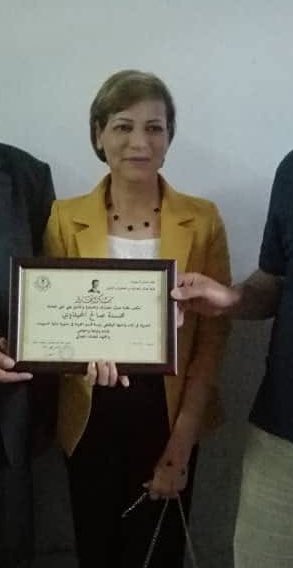In a groundbreaking move, Suweida has nominated a woman to the position of governor, awaiting a response from the new Syrian administration, which assumed leadership following the fall of the former regime.
The local news network Suweida 24 reported today, Wednesday, that the Directorate of Inspection and Oversight has nominated Mrs. Muhsina al-Muheithawi for the position of governor. The nomination has been met with support from religious and political groups in the governorate.
The network highlighted that this nomination was discussed with delegations from the new administration during recent visits to Suweida. The most recent meeting occurred last Wednesday when a transitional administration envoy for the southern region met with Sheikh Hikmat al-Hijri, the spiritual leader of the Druze Muslim community, to discuss issues related to managing the transitional phase.
Key Discussions in the Meeting
During the meeting, the parties deliberated on several critical ideas, including:
•Partnership during this sensitive period of rebuilding the nation.
•The appointment of a governor and police chief from Suweida to promote the principle of administrative decentralization.
•The integration of local armed factions into the structure of the new Syrian Ministry of Defense.
The network added that the nomination of Mrs. al-Muheithawi was endorsed by Sheikh Hikmat al-Hijri, who emphasized that her selection was based on various criteria, particularly her integrity and her lack of involvement in corruption during the previous regime.
Who Is Muhsina al-Muheithawi?
This is the first nomination of its kind in Syria for a woman to serve as governor. Born in 1970, Muhsina al-Muheithawi is a graduate of the Faculty of Commerce and Economics and has extensive experience in public administration, according to Suweida 24.
She began her career in the 1990s at the Suweida Finance Directorate, where she held several positions, including head of the treasury department. She resigned in March 2023 in protest against widespread corruption within the directorate, which she felt powerless to combat alone.
Since the start of the Freedom Square protests in Suweida in August 2023, al-Muheithawi has been a regular participant, defying threats of security persecution due to her involvement.
Suweida is still awaiting a decision from the new Syrian administration on whether to approve or reject al-Muheithawi’s appointment.
Controversial Statements on Women’s Roles
Recent remarks by Obaida Arnout, spokesperson for the political administration of the Military Operations Administration in Syria, have sparked controversy. Arnout stated that “the essence and biological and psychological nature of women are incompatible with certain roles, such as the Ministry of Defense.”
Women’s rights activists criticized the remarks as dismissive of women’s capabilities and as an expression of resistance to their participation in high-ranking governmental positions. This sparked widespread debate on social media.
Critics of Arnout’s statements cited historical examples of Syrian women in prominent roles, such as Ambassador Alice Kandalaft, the first Arab woman to represent her country at the United Nations, and Nazik al-Abid, a feminist leader who played a key role in the Battle of Maysalun.
Office for Women’s Affairs
Following the uproar, the Syrian political administration announced the establishment of a new Office for Women’s Affairs as part of its plans to empower women’s roles in society.
Aisha al-Dibs was appointed head of the office, marking an unprecedented development in the administration’s political structure.
Al-Dibs emphasized that the office would focus on enabling Syrian women to actively participate in societal and political work. She also noted that women would play a significant role in the upcoming national conference, which will shape the features of the new state.
This article was translated and edited by The Syrian Observer. The Syrian Observer has not verified the content of this story. Responsibility for the information and views set out in this article lies entirely with the author.


